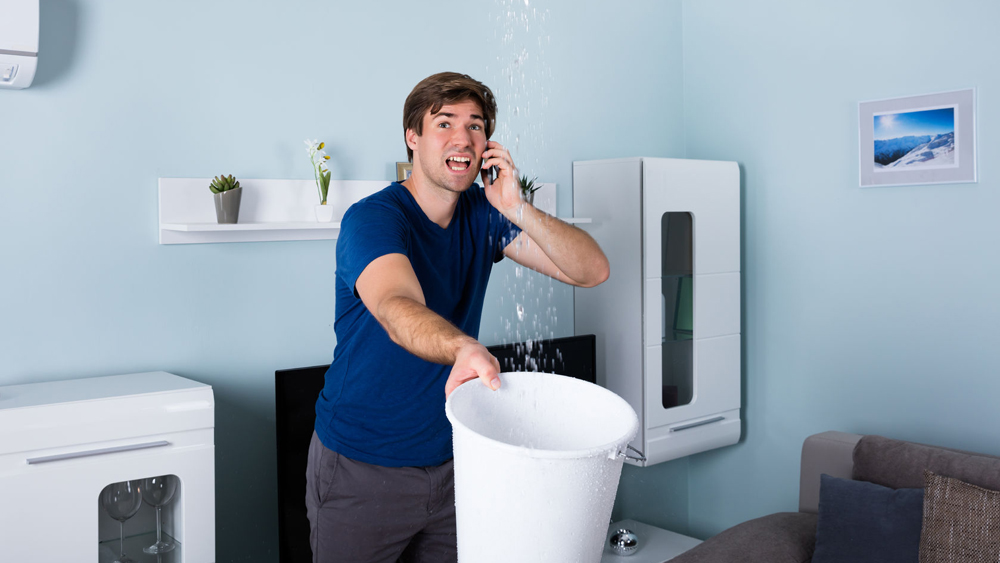Revealing the Key Triggers Behind Residential Water Leak Issues
Revealing the Key Triggers Behind Residential Water Leak Issues
Blog Article
This post listed below on the subject of Most Common Causes of Leaky Pipes is exceedingly insightful. Don't skip it.

Leaks not just cause waste of water yet can additionally cause unneeded damage to your residence as well as promote undesirable natural development. By looking and also recognizing for daily scenarios that trigger leaks, you can protect your home from future leakages as well as unnecessary damages.
Instantaneous temperature changes.
Severe temperature level changes in our pipes can create them to expand and contract suddenly. This growth and also contraction might trigger splits in the pipes, especially if the temperature level are below freezing. If you maintained an eye on how your plumbing works, it would certainly be best. The visibility of the previously stated circumstances regularly shows a high risk.
Corroded water systems
As time goes by, your plumbing system ages as well as corrosion such as rust may begin eating away the pipelines. This could be the reason for discoloration or warping on your pipes. This requires an examination with your plumber quickly. If our plumbing system is old, consider replacing the pipes given that they are at a higher risk of deterioration than the more recent designs.
Faulty Pipe Joints
Pipe joints can weaken over time, resulting in water leakages. If you have noisy pipelines that make ticking or banging sounds, specifically when the hot water is transformed on, your pipeline joints are possibly under a lot of pressure.
Intruding roots
A lot of water leaks begin outside your house as opposed to inside it. If you see a sudden decrease in water pressure, state in your tap, take time to go out as well as analyze your backyard. You may discover wet patches or sinkholes in your backyard, which could mean that tree roots are attacking water lines causing water to permeate out. You can have your plumber check for invasion, especially if you have trees or hedges near your property.
Poor Water Connectors
Sometimes, a leak can be caused by loosened hose pipes as well as pipes that provide your home appliances. Most of the time, shifting is what causes the loosened water Connections. You may locate when it comes to a washing device, a hose might spring a leak as a result of drinking during the spin cycle. In case of a water links leak, you may see water running directly from the supply line or pools around your appliances.
Obstructed Drains
Obstructed drains may be annoying as well as inconveniencing, yet they can in some cases wind up causing an overflow resulting in break pipes. Keep removing any products that might drop your drains that might clog them to prevent such hassles.
All the above are causes of leakages however not all water leakages arise from plumbing leakages; some leakages might come from roof leaks. All leaks should be repaired promptly to prevent water damage.
Leaks not just create waste of water yet can also create unnecessary damage to your home and promote undesirable organic development. By understanding and also looking for day-to-day circumstances that create leaks, you can safeguard your house from future leaks and also unnecessary damages. Today, we will look at six leak triggers that might be causing your pipes to trickle.
At times, a leakage can be triggered by loose hose pipes and pipes that provide your appliances. In case of a water links leak, you may observe water running directly from the supply line or puddles around your home appliances.
How To Check For Water Leak In Your Home
How To Check for Leaks
The average household's leaks can account for nearly 10,000 gallons of water wasted every year and ten percent of homes have leaks that waste 90 gallons or more per day. Common types of leaks found in the home are worn toilet flappers, dripping faucets, and other leaking valves. These types of leaks are often easy to fix, requiring only a few tools and hardware that can pay for themselves in water savings. Fixing easily corrected household water leaks can save homeowners about 10 percent on their water bills.
To check for leaks in your home, you first need to determine whether you're wasting water and then identify the source of the leak. Here are some tips for finding leaks:
Take a look at your water usage during a colder month, such as January or February. If a family of four exceeds 12,000 gallons per month, there are serious leaks.
Check your water meter before and after a two-hour period when no water is being used. If the meter changes at all, you probably have a leak.
Identify toilet leaks by placing a drop of food coloring in the toilet tank. If any color shows up in the bowl after 10 minutes, you have a leak. (Be sure to flush immediately after the experiment to avoid staining the tank.)
Examine faucet gaskets and pipe fittings for any water on the outside of the pipe to check for surface leaks.
Undetected water leaks can happen without the home or business owner even realizing. If you suspect a water leak, but not able to find the source. It is time to contact a professional water leak detection service, The Leak Doctor.
How To Find a Water Leak In Your Home
https://www.leakdoctor.com/blog/How-To-Check-For-Water-Leak-In-Your-Home_AE197.html

I was brought to that write-up about How to Find Water Leaks from someone on a different site. Sharing is caring. Helping people is fun. Thank-you for your time spent reading it.
Visit My Website Report this page